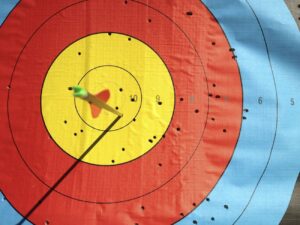
Table of Contents
What is Media Literacy?
In today’s digital age, where information is readily available and constantly bombarding us from various sources, media literacy has become more critical than ever. With the vast amount of information circulating through traditional media outlets and online platforms, individuals need to develop the skills to analyze and evaluate the media they consume critically. In this article, we will explore the concept of media literacy, its significance in our daily lives, and how it can empower individuals to navigate the digital landscape effectively.
1. Introduction to Media Literacy
Media literacy encompasses skills and competencies that enable individuals to access, analyze, evaluate, and create media messages thoughtfully and responsibly. It goes beyond simply consuming media and encourages active engagement with the content. Media literacy empowers individuals to become discerning consumers, capable of distinguishing between reliable information and misinformation.
2. The Importance of Media Literacy in the Digital Age

Media literacy plays a crucial role in today’s interconnected world, where information is readily shared through social media, online news outlets, and other digital platforms. It helps individuals develop the critical thinking skills necessary to navigate the overwhelming amount of information and make informed decisions. Media literacy also fosters a sense of digital citizenship, promoting responsible behavior online.
3. Understanding the Concept of Media Literacy
Definition of Media Literacy
Media literacy can be defined as the ability to access, analyze, evaluate, and create media in various forms, including print, digital, and visual media. It involves understanding the techniques and strategies used in media production and critically interpreting and responding to media messages.
Critical Components of Media Literacy
Media literacy comprises several key components:
- Cognitive Skills include critical thinking, analyzing information, and interpreting media messages.
- Media Literacy Competencies involve understanding media language, recognizing bias and manipulation, and evaluating sources for credibility.
- Creative Skills: Media literacy encourages individuals to express themselves creatively through various media forms, such as creating videos, writing blogs, or producing podcasts.
4. Developing Critical Thinking Skills
To be media literate, individuals must develop critical thinking skills to navigate the vast media landscape effectively. This involves:
Analyzing Media Messages
Individuals need to examine media messages closely, considering the intent of the creator, the target audience, and the underlying biases or motivations. By critically analyzing media content, individuals can better understand the messages being conveyed.
Recognizing Bias and Manipulation
Media outlets often have their own biases and agendas. Being media literate allows individuals to identify these biases and recognize when they are being manipulated. By understanding
the techniques used to influence opinions, individuals can make more informed decisions about the information they encounter.
Evaluating Sources
In an era of rampant misinformation, evaluating the credibility of sources is crucial. Media literacy equips individuals with the skills to assess the reliability and authenticity of information sources, enabling them to verify facts and distinguish between trustworthy and untrustworthy sources.
5. Navigating the Digital Landscape
In the digital age, media literacy extends to online platforms and their challenges. Some essential aspects include:
Media Literacy and Online Information
With the proliferation of online content, individuals must be able to navigate the vast sea of information effectively. Media literacy helps individuals identify reliable sources, distinguish between credible and unreliable information, and develop strategies for fact-checking and verification.
Fact-Checking and Verification
Media literacy involves fact-checking information and verifying its accuracy and legitimacy. This skill is essential in countering misinformation and fake news, which can have far-reaching consequences.
Recognizing Misinformation and Fake News
Media literacy empowers individuals to identify misinformation and fake news, which can be deliberately spread to manipulate opinions or deceive audiences. In addition, individuals can separate fact from fiction by critically examining the content and cross-referencing information.
6. Media Literacy in Education
Recognizing the importance of media literacy, educational institutions are integrating it into their curricula. Some key considerations include:
Integrating Media Literacy into the Curriculum
Schools and colleges are incorporating media literacy as a core component of education. By integrating media literacy into various subjects, educators aim to equip students with the necessary skills to navigate the media landscape effectively.
Teaching Students to Be Critical Consumers
Educators play a vital role in teaching students to be critical media consumers. By fostering an environment that encourages critical thinking and media analysis, students can develop the skills needed to evaluate information independently.
Encouraging Media Creation and Digital Citizenship
Media literacy also involves empowering students to create their own media content responsibly. Educators can help students become active participants in the digital world by encouraging media creation and teaching digital citizenship.
7. Empowering Individuals through Media Literacy
Media literacy empowers individuals to become active participants in the media landscape. It encourages:
Recognizing Personal Biases and Prejudices
Media literacy helps individuals recognize their biases and prejudices, enabling them to approach media content with a more open and discerning mindset. By being aware of their perspectives, individuals can critically engage with media messages.
Engaging in Constructive Dialogue
Media literacy fosters constructive dialogue by encouraging individuals to engage with different perspectives and engage in meaningful discussions. It promotes respectful communication and exchanging ideas, allowing for a more informed and inclusive society.
Taking Informed Actions
Media literacy equips individuals to take informed actions based on the information they consume. It actively encourages individuals to shape their communities and societies, promoting positive change through responsible media consumption.
8. Media Literacy and Its Impact on Society
Media literacy has broader implications for society as a whole. It plays a crucial role in the following:
Promoting Informed Citizenship
Media literacy promotes informed citizenship by equipping individuals with the skills to critically analyze political information, engage in public discourse, and make informed decisions as voters and active participants in democratic processes.
Countering the Spread of Misinformation
As misinformation continues to pose a significant challenge, media literacy is a powerful tool to counter its spread. By equipping individuals with the skills to evaluate sources and verify information, media literacy can help mitigate the impact of misinformation on society.
Fostering a Media-Literate Society
Ultimately, media literacy aims to foster a society where individuals have the skills and knowledge to navigate the media landscape effectively. As a result, a media-literate community is more resilient to misinformation, more engaged in civic life, and better equipped to make informed decisions.
9. Conclusion
Media literacy is essential in a world where information is abundant and constantly evolving. It empowers individuals to navigate the digital landscape, critically analyze media messages, and make informed decisions. By developing critical thinking skills, recognizing biases, and evaluating sources, individuals can become media-literate and actively engage with the media they consume. Media literacy is crucial for personal growth and building a more informed and resilient society.
FAQs (Frequently Asked Questions)
Q1: Is media literacy only relevant to adults?
A1: No, media literacy is essential for individuals of all ages. It is particularly crucial for children and young adults growing up in an increasingly digital world.
Q2: How can media literacy help in combating fake news?
A2: Media literacy equips individuals with the skills to identify misinformation, fact-check information, and evaluate the credibility of sources, thereby countering the spread of fake news.
Q3: Can media literacy be taught in schools?
A3: Many educational institutions are integrating media literacy into their curricula, recognizing its importance in preparing students to be critical consumers and responsible creators of media.
Q4: How can media literacy contribute to democratic processes?
A4: By promoting informed citizenship, media literacy enables individuals to critically analyze political information, engage in public discourse, and make informed decisions as voters.
Q5: Where can I find resources to enhance my media literacy skills?
A5: Various online platforms, organizations, and educational institutions provide resources and materials to enhance media literacy skills. Some examples include media literacy websites, fact-checking organizations, and educational programs.









